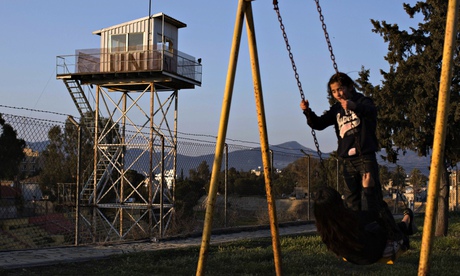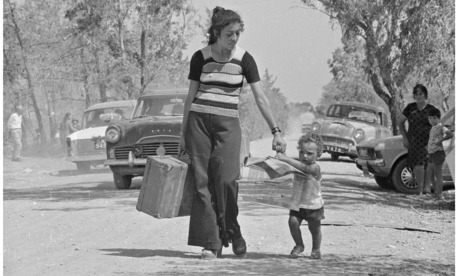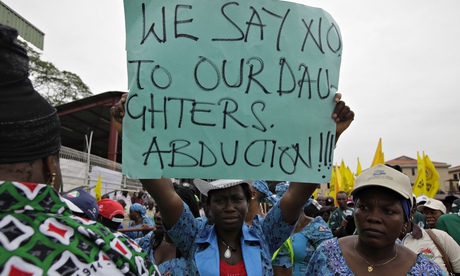On the outskirts of a mountain village in Turkish-occupied northern Cyprus, Lakis Zavallis, 72 in September, is scrambling about a rocky roadside hillside looking for an imitation-leather grip he had first used when he was a law student in London in the early 60s.
Some 40 years ago he was a lieutenant commanding a diminishing platoon of weary Greek Cypriot National Guardsmen when he hid the bag under the overhang of a rock. They had just been ordered to make what he thought might be a temporary withdrawal from a forward position and he wanted to lighten his load. In it was the English paperback edition of Solzhenitsyn’sCancer Ward and a sweater, for even during the island’s scorching summers the Kyrenia range gets chilly at night when you’re dodging mortar bombs by living in a hole in the ground.
Beneath the book and the sweater is the item that makes Lakis persist in trying to find his bag. This was his second attempt this year and there have been others. In it is the diary he kept when he found himself part of a shambolic home guard doing its best to take on Nato’s biggest army in cold war Europe and one that came with the kind of air and naval support intended to take on the Soviet Union.
This month sees the 40th anniversary of Operation Attila, Turkey‘s codename for its invasion of Cyprus. It started on 20 July 1974 and ended almost a month later on 16 August. By then, its forces occupied just over a third of the island in the name of a Turkish Cypriot minority not quite a fifth of its total population. They still do, though May’s visit by US vice-president Joe Biden has raised hopes that the elusive settlement to the Cyprus problem might at last be in the offing, if only to divide the spoils of newly discovered offshore natural gas and oil.
On 15 July 1974, a coup against Archbishop Makarios III, president of Cyprus since 1960 when it stopped being a British colony, was orchestrated by the military junta in Athens who wanted what Greek speakers call enosis. This was the same political union with Greece desired by the Eoka guerrillas who in the late 1950s fought the British under Georgios Grivas, a Cypriot-born Greek army officer. The coup gave Ankara all the reasons it ever needed to launch Operation Attila, which came five days later.
About 650 officers in the 15,000- strong Greek Cypriot National Guard were professional soldiers from the junta’s Greece. Their passion for enosis was rejected by those Makarios supporters who preferred a Cyprus that was a world away from the weird fascists then ruling democracy’s birthplace. Dissenting conscripts got into trouble. In 1972 Doros Zavallis, Lakis’s youngest brother who had tasted life under the colonels as a law student in Athens, returned to Cyprus to do his national service. When he was overheard criticising a speech made by an officer, warning them they should be ready to intervene if Makarios took a wrong turn, he was accused of being a communist, given 20 days’ detention and sent to a remote coastal outpost monitoring a Turkish enclave.
These enclaves were guarded by the Turkish Cypriots’ own militia, established during a period of inter-communal reciprocal slaughter between 1963 and 1967. Enosis was anathema to them. Their own extremists responded with another single-word slogan: taksim. It meant partition.
 Children play in a park next to a fence marking the United Nations buffer zone in a partially restricted area in the Turkish Cypriot-controlled area of central Nicosia, 2014. Photograph: Neil Hall/Reuters
Children play in a park next to a fence marking the United Nations buffer zone in a partially restricted area in the Turkish Cypriot-controlled area of central Nicosia, 2014. Photograph: Neil Hall/Reuters
The coup was the culmination of a decade of fratricidal Greek Cypriot strife. Athens backed the septuagenarian Grivas, hero of the struggle against the British, who secretly returned to his native island from Greece and set up his Eoka B. Makarios responded by creating a praetorian guard he called the Tactical Police Reserve. When in January 1974 Grivas died of a heart attack, thousands attended his funeral in Limassol and Eoka B, armed by the junta, carried on. But it was some of the National Guard’s ancient T-34 tanks, a gift from Russia, that fired the coup’s opening shots at the presidential palace. The archbishop had already survived several assassination attempts and his luck held. He escaped to Paphos, his birthplace, from where a British helicopter took him to RAF Akrotiri on the sovereign bases. By the time the Turks had landed, he was already in New York and had just addressed the UN security council.
On the morning of the invasion Lakis Zavallis, driving a blue Morris Traveller used by his family’s printing business in Nicosia, went to the village of Paleiometocho near the capital’s airport where he was to report for duty with 366 Reserve Battalion. Names were being taken in a school. It took about 30 minutes and on his way he overtook some of the National Guards’ Stalingrad-era T-34s. As he overtook them, the commanders in their open turrets smiled and waved. It was about 8am and the sky was full of contrails made by Turkish Skyhawks. Soon they would be falling on the personnel carriers of the Greek Cypriots’ only armoured infantry battalion and kill their commanding officer.
Like most Nicosians, he had been woken shortly after dawn by gunfire, explosions and low-flying aircraft. He had got to the roof of his apartment block with his Super 8 camera in time to film the Turkish paratroops dropping to reinforce the Turkish Cypriot enclave north of the city. Then he got together what bits of uniform he could find, kissed his wife Anita and their two young sons goodbye and left.
In theory, the Greek Cypriots had in mind the kind of mass mobilisation the Israelis did so well. But Makarios had never dared allow an exercise involving the full call-up of reservists, for fear its Greek officer corps would march them to the presidential palace and dethrone him. Now thousands of Greek Cypriot men were clamouring for the chance to defend their island until the Greeks or the UN or both came to their rescue. They were of both factions, for the coupists had opened the jails and let out all the Makarios supporters they had rounded up, some of them looking rather the worse for wear. “Of course, that was before most of them had come under fire,” recalled Lakis. “But there was a lot of enthusiasm. What was lacking was the apparatus to equip and absorb them.”
His two brothers turned up at a reporting centre a couple of minutes’ walk from the Zavallis family home where their widowed mother lived. Doros, despite the treatment he received as a conscript, grabbed the last Lee-Enfield rifle from a truck full of small arms and was soon part of a unit heading north. Sophocles, the middle brother who had attended Leeds College of Technology, missed out on the last weapons’ distribution and was never mobilised. This turned into very bad luck indeed. During the first and very loosely observed ceasefire he tried to find his brothers. Turkish soldiers shot up his car and he ended up in a mainly Turkish Cypriot ward in the British hospital at Dhekelia being treated for four bullet wounds.
Meanwhile, Lakis and Doros went separately off to war. Doros became the ammunition carrier for a heavy machine gun team but he did occasionally use his Lee-Enfield. Neither he nor his brother had fired a rifle since basic training, which in Lakis’s case was almost 10 years ago. Not that he had one to fire until he acquired it from a wounded man after they came under air attack and naval gunfire. Nor did the second lieutenant star on his epaulette mean he was qualified to command frontline infantry. It was there because as a lawyer he was part of the National Guard’s legal department.
But his men didn’t know that, and when I met him in the foothills of the Kyrenia range, where the dry earth was being blown into big brown clouds by Turkish artillery, they appeared willing to follow him almost anywhere. Some still do. In May, when the heat was kinder, several of them joined their lieutenant in the search for his bag, though he complained they weren’t all as nimble on those rocky terraces as they should be.
Military historian Colin Smith was the Observer’s chief roving reporter in 1974. He has just edited Andrew Borowiec’s Warsaw Boy, a memoir of the Polish resistance (Viking, out now).








